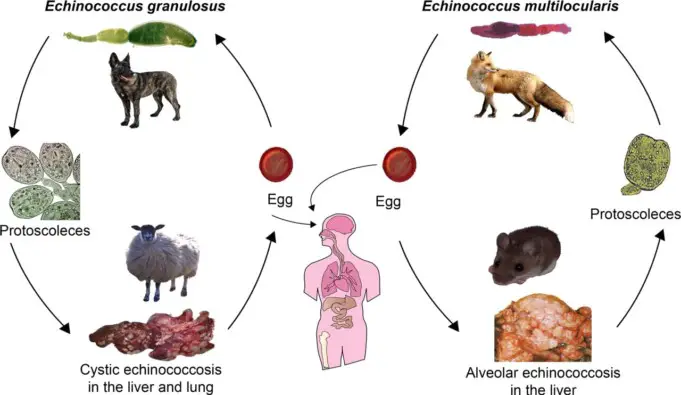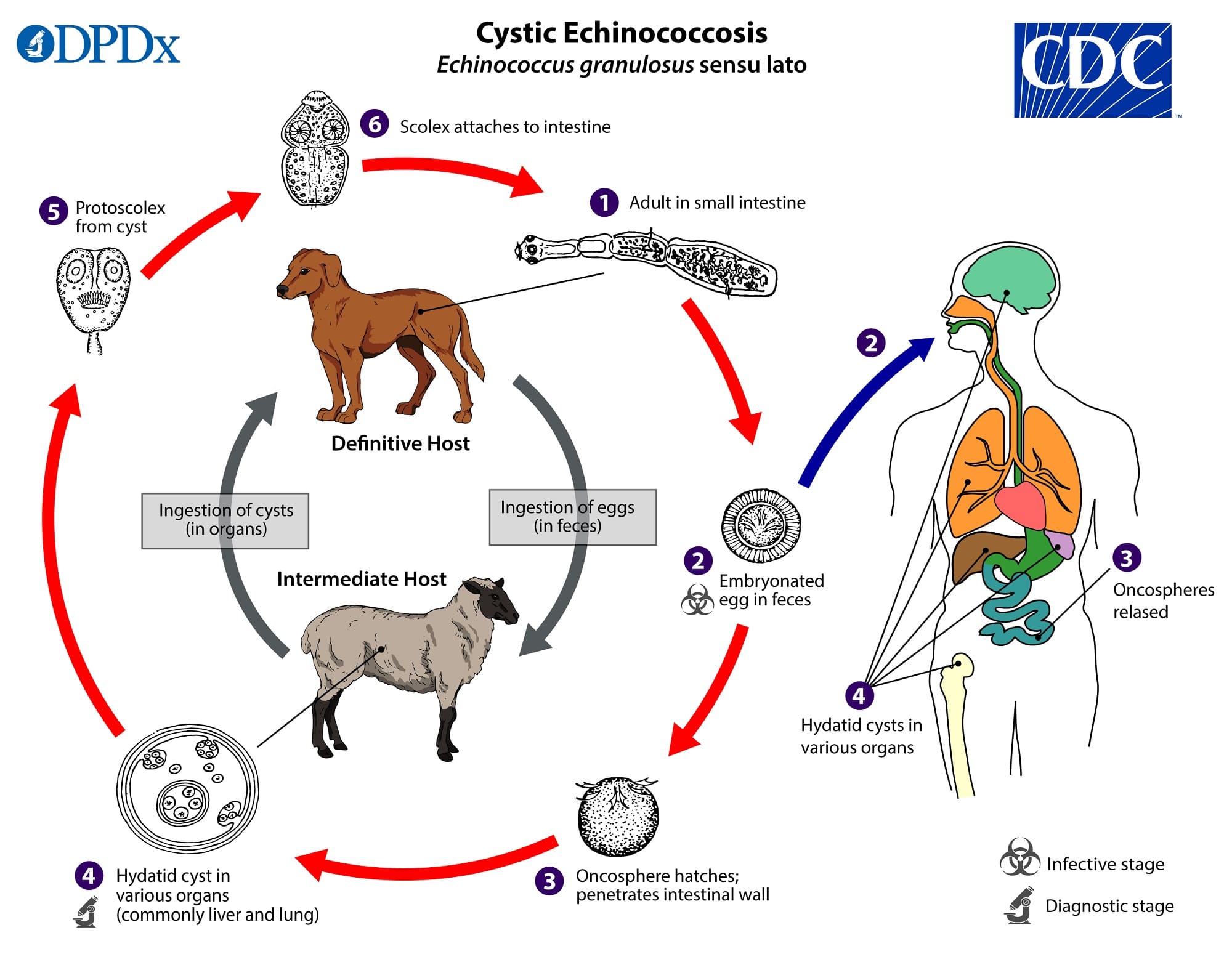Echinococcus is the infection that is caused by a parasitic tapeworm from the Echinococcus genus. Echinococcus can affect humans by a few types of tapeworms, including E. multilocularis, E. granulosus, and E. Vogeli.
In some instances, the affected organs depend on the type of tapeworm that caused the infection.
The condition is rare in the US. It occurs more often in Africa, the Mediterranean, the Middle East, and Central Asia. It can be fatal if left untreated. Chances of survival may increase if a person infected with echinococcus gets treatment immediately.
Symptoms
Generally, symptoms may differ depending on the organ that is affected. The liver is usually affected in about 75% of people who contract the infection. Symptoms may include the formation of cysts in the liver and pain in the abdomen.
The lung is affected in about 22% of people who are affected by the infection. Respiratory symptoms may include coughing out bloody mucus and chest pain. Other parts of the body that can be affected include the kidneys, skin, and spleen.
Causes
If a parasitic tapeworm infects a person, echinococcus would likely develop. The parasite finds a host, which is are common animals, such as sheep, goats, or dogs. The worm then lives in the bowels of these animals and discharges its eggs into the feces of the animals.
A person is most likely to get infected when they eat food that has been exposed to contaminated with animal feces. The incubation period only lasts for a few months.
After that, symptoms will begin to manifest themselves. Few strains of the parasite can have a more extended incubation period that may take up to a few years.
Who is at risk of echinococcus?
One major factor for contracting the parasite is if a person is exposed to the graves of cattle, dogs, sheep, or pigs. For instance, people who work on farms with animals are at higher risk of contracting the infection.
A person can also get infected if they drink water or eat food that is contaminated with the eggs of the tapeworm.
Diagnosing echinococcus
Your doctor may ask about the symptoms and run some tests to diagnose your infection accurately. A chest X-ray may be used to rule out other forms of infection. They may also use abdominal CT or MRI scan to make their diagnosis.
Since the incubation period of echinococcus is long, the parasites may be found while running tests for other things.
Treatment
The parasites that cause echinococcus can be destroyed with certain medications. In some cases, your doctor will recommend surgery. The treatment plan usually depends on how severe the symptoms are. It also depends on what organs are infected.
Medication
Medication is mostly always used to treat echinococcus infectious. Your doctor may prescribe albendazole or mebendazole. Anti-inflammatory medications may also be recommended to help treat the inflammation that may be affecting infected organs.
Sometimes, chemotherapy medications may also be administered to help treat organ cysts that are caused by the parasite.
Surgery
In some cases, your doctor may suggest surgery to treat possible cysts caused by the infection. If the brain has been affected by the disease and it has accumulated fluid, then your doctor may have to do a surgery to install a shunt.
This is a medical device used in draining out fluid stored in the brain.
Prevention
There are several steps that can be taken to prevent echinococcus infection. Awareness and education can help in regions of the world where the condition is very common.
Having the worms removed from your dogs can help to prevent the spread of the parasites. Proper disposal of animal waste can also help to minimize contact with tapeworm eggs
Appropriate handling of cattle at slaughterhouses and farms is also vital. This includes implementing meat inspection protocols. Avoiding raw or undercooked beef, fish, and pork can also be the right step towards preventing echinococcus.
Properly wash our vegetables and fruits, especially in areas where tapeworms are very common.
Outlook
A person’s perspective on echinococcus depends on how they are and how badly their organs are affected. Sometimes, cysts may rupture, and this can be life-threatening. It will help if your doctor is able to treat the infection, hence saving your life properly.
Have you had to treat any infection caused by tapeworm parasites? Have you had any experience with echinococcus before? If yes, what was the experience like? Please share your opinions and thoughts with us in the comments below.













